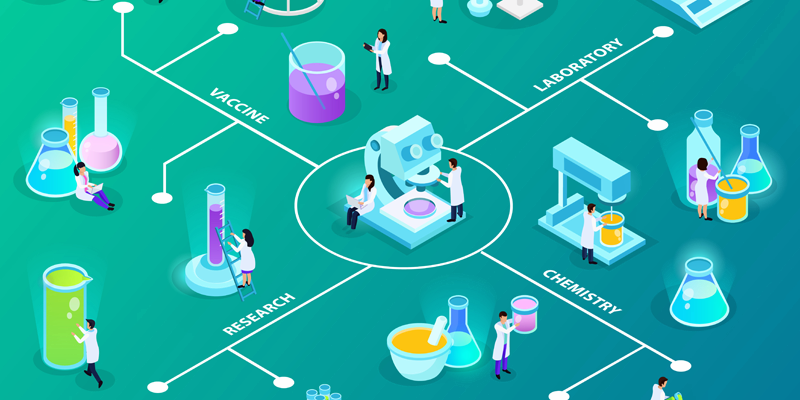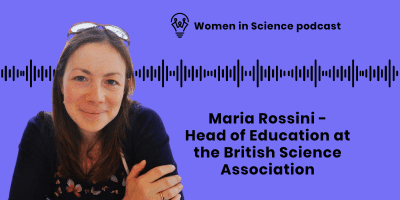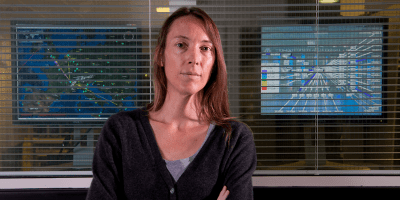Dr Maria Azmanova is a lecturer in medicinal chemistry at the University of Bradford. She studied for a BSc in Chemistry with Pharmaceutical and Forensic Sciences, followed by her Master of Chemistry in the same subject, and then her PhD in Medicinal Chemistry all at the University of Bradford, before taking up her academic position there. Maria’s role is split between teaching and research. Medicinal chemistry is a multidisciplinary field that combines knowledge from chemistry, biology, and pharmacology to design, develop and optimise chemical compounds for use as therapeutic drugs.
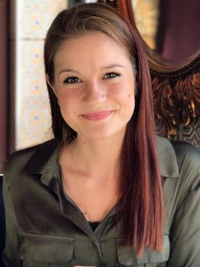
“In my field of medicinal chemistry diversity of thought enhances creativity and encourages contributions from multiple perspectives, so everybody is involved. That can only lead to better decision-making and a broader scientific impact, which is what we need in science.”
Finding my happy place in science
I started my university journey in 2014, which was exactly ten years ago when I did my Bachelor of Science degree in Chemistry with Pharmaceutical and Forensic Sciences.
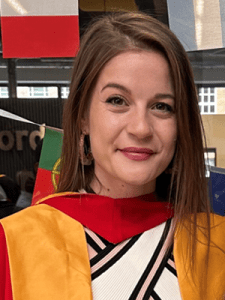
Balancing teaching and research
Simply put, my two core responsibilities at the university are teaching and research. In terms of teaching, I deliver a range of different teaching sessions to students, for example, lectures, workshops, team-based application exercises and laboratory practicals. Providing students with guidance for their written assignments and marking their work is also part of my teaching role.
In contrast, research is very different, involving lots of hands-on laboratory work from my side, followed by analysis of the results. These findings, from the studies I work on, are then published in peer-reviewed articles and I present them at national and international conferences.
The scope and potential impact of medicinal chemistry
Medicinal chemistry is a scientific field which is concerned with the identification and synthesis, (or in simple terms, making and development) of new chemical compounds or entities which are suitable for therapeutic use.
The search for new drugs to combat serious illnesses is an important and exciting challenge at the forefront of medical research, and therefore, medicinal chemistry can have an incredibly positive impact on the health and well-being of millions of people everywhere around the world. This is why I was drawn to working in this field.
Working at the interface of chemistry and biology
I work at the interface of chemistry and biology, so I do both when it comes to lab work. My research focuses on the design and synthesis of innovative precious metal complexes. These are compounds that contain metals, which is a bit unusual when you think about a drug or medication, so it’s quite novel.
Then later on when I create these compounds, I investigate their biological properties. For example, I’m currently working on anti-cancer and anti-bacterial compounds, so I often find myself running between the two labs, chemistry and biology, trying to balance it out, find a new molecule, test it, and see if it’s good enough or not.
Enhancing contributions and encouraging contributions from multiple perspectives
Diversity in science is critical because it cultivates talent while promoting full inclusion across the community. In my field of medicinal chemistry diversity of thought enhances creativity and encourages contributions from multiple perspectives, so everybody is involved. That can only lead to better decision-making and a broader scientific impact, which is what we need in science.
Importance of International Day of Girls and Women in Science
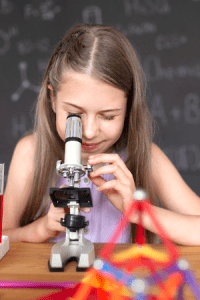
I’m glad to have the opportunity to take part in this issue of Womanthology as I’m hoping I can help to illustrate the importance of International Day of Women and Girls Science through this piece. Women and girls are amazing and have so much to offer when it comes to tackling some of the greatest challenges in science, so we need to harness all talents.
Diversity in research expands the pool of talented researchers and those researchers can bring fresh perspectives, talent, and creativity. Therefore, this is a reminder that women and girls play a critical role in the science and technology communities and that their participation should be celebrated and strengthened even more.
This year’s celebrations
I had to think about what I would be doing to celebrate this year because I feel like I’m surrounded by amazing women in science all the time. For me, we celebrate ourselves every day, but to be more specific, in our School of Pharmacy and Medical Sciences, we hold research seminars every week, and we have people who come in to talk about their research and the work that they do.
This February we have a female speaker who will talk about her research, and the aim will be to empower younger female academics to develop their careers and to encourage leadership, as well as to inspire female students to get into our wonderful world of science.
I will be using social media too. I recently tweeted about ten of the most amazing women in science I know. There’s power in social media!
Coming up next
I’m quite excited because I am a young academic (I started in 2022) and I’m also an early career researcher. Even though I’ve done research for quite a few years now, I am now establishing my independent career in research and there are a lot of things lined up for me in terms of career development in the next few years.
For example, I have already taken some leadership responsibilities when it comes to teaching. I’m continuing my research and, over the next few years, I will be working towards establishing a strong research line that will contribute to the existing knowledge in science. I’m also very passionate about outreach activities and promoting higher education and science among the general public, especially the younger generation
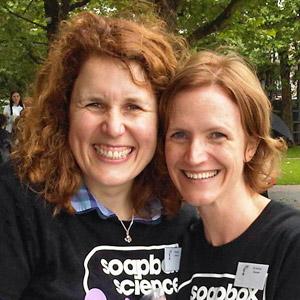
One specific thing that I’m looking forward to, because it’s going to be a lot of fun, is a science event happening in the summer here in Bradford. Several colleagues and I will be taking part in this year’s Soapbox Science Bradford programme to promote women in science. I’m looking forward to this because I think it will be a fun day with lots of opportunities for people to enjoy, probe, interact with us and be inspired by an amazing team of female scientists.
Initially, I wanted to be a speaker at the event, but then I was invited to be part of the organising team so of course I said yes, I love organising and I love science. What could be a better combination?
Header image: Macrovector on Freepik

